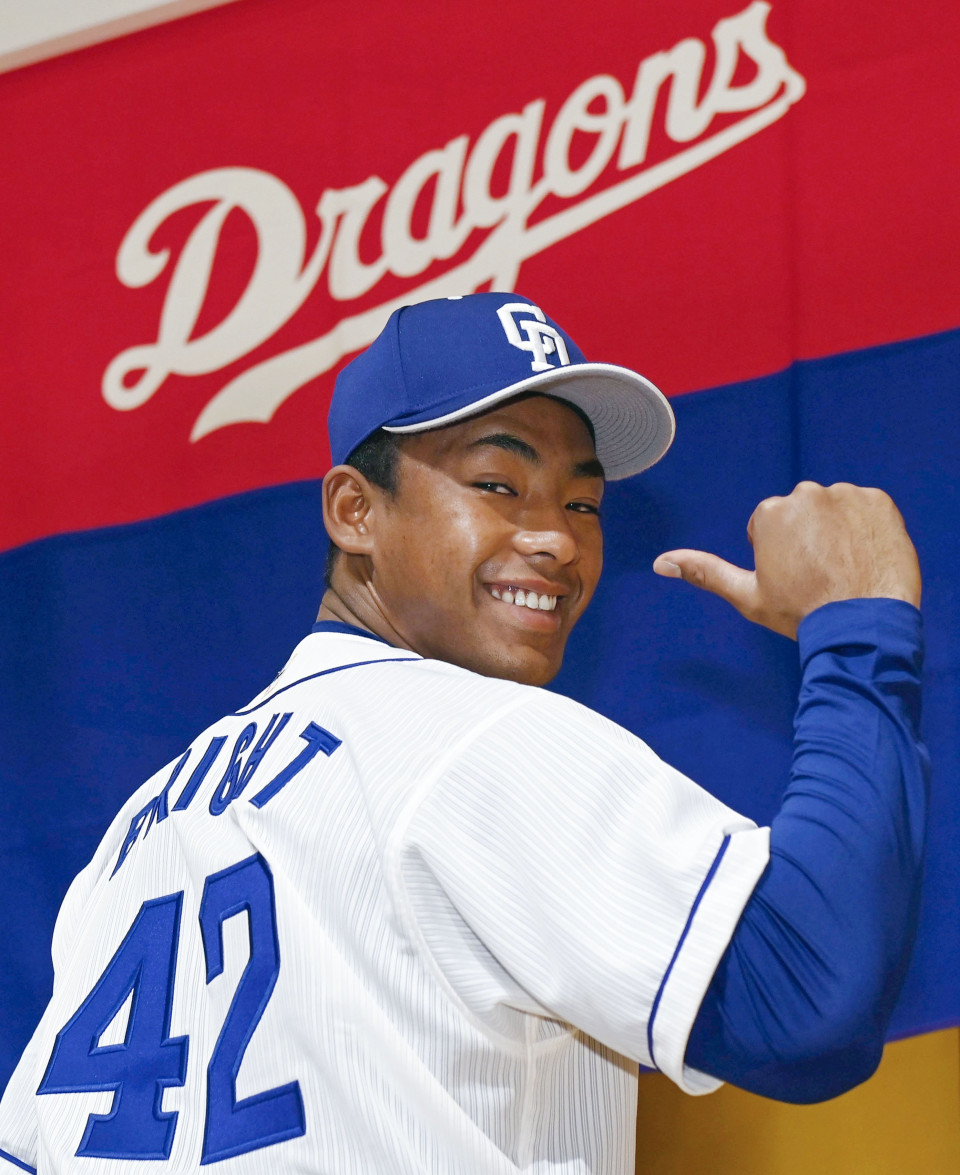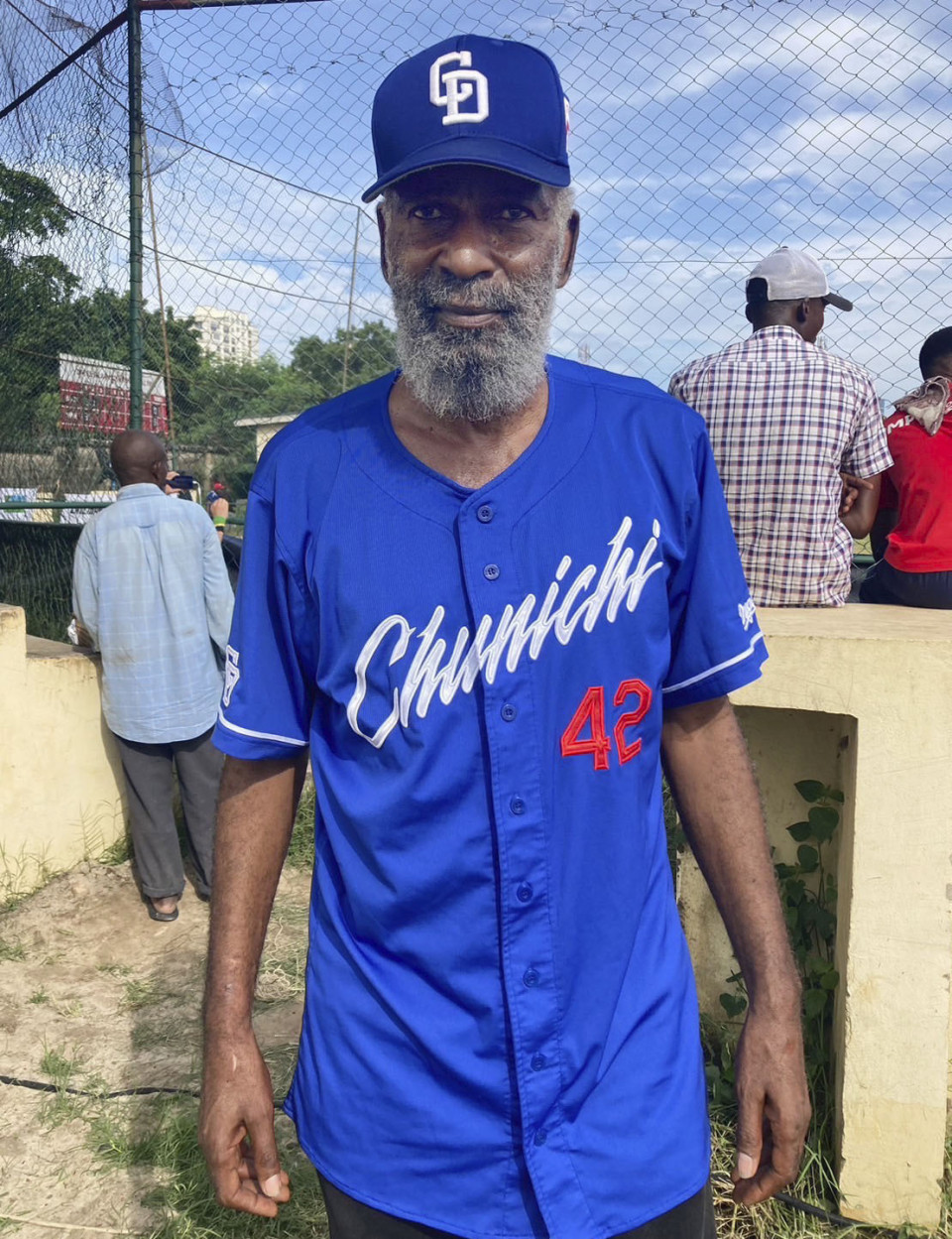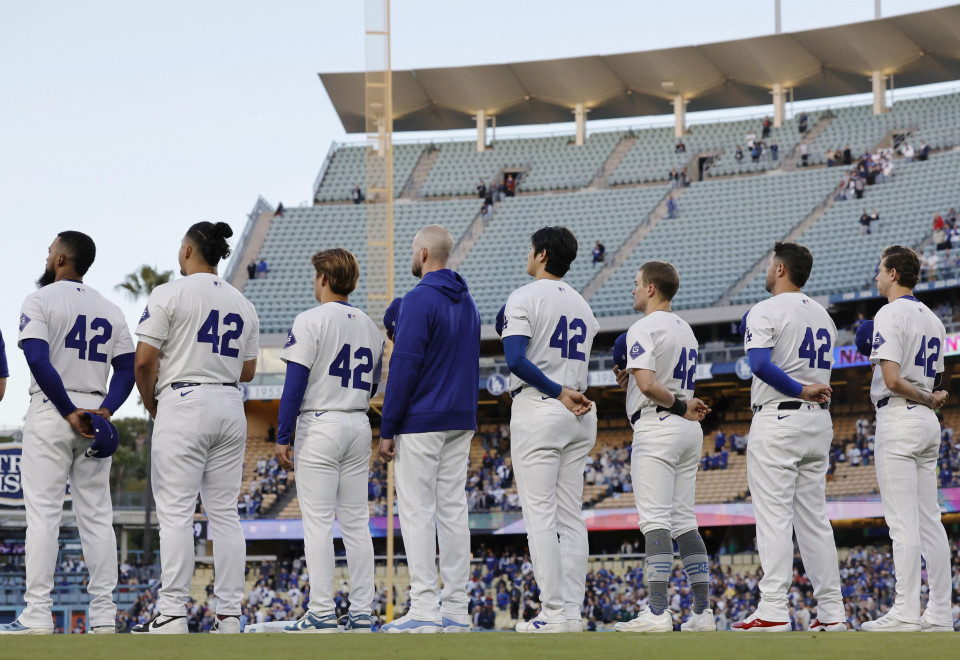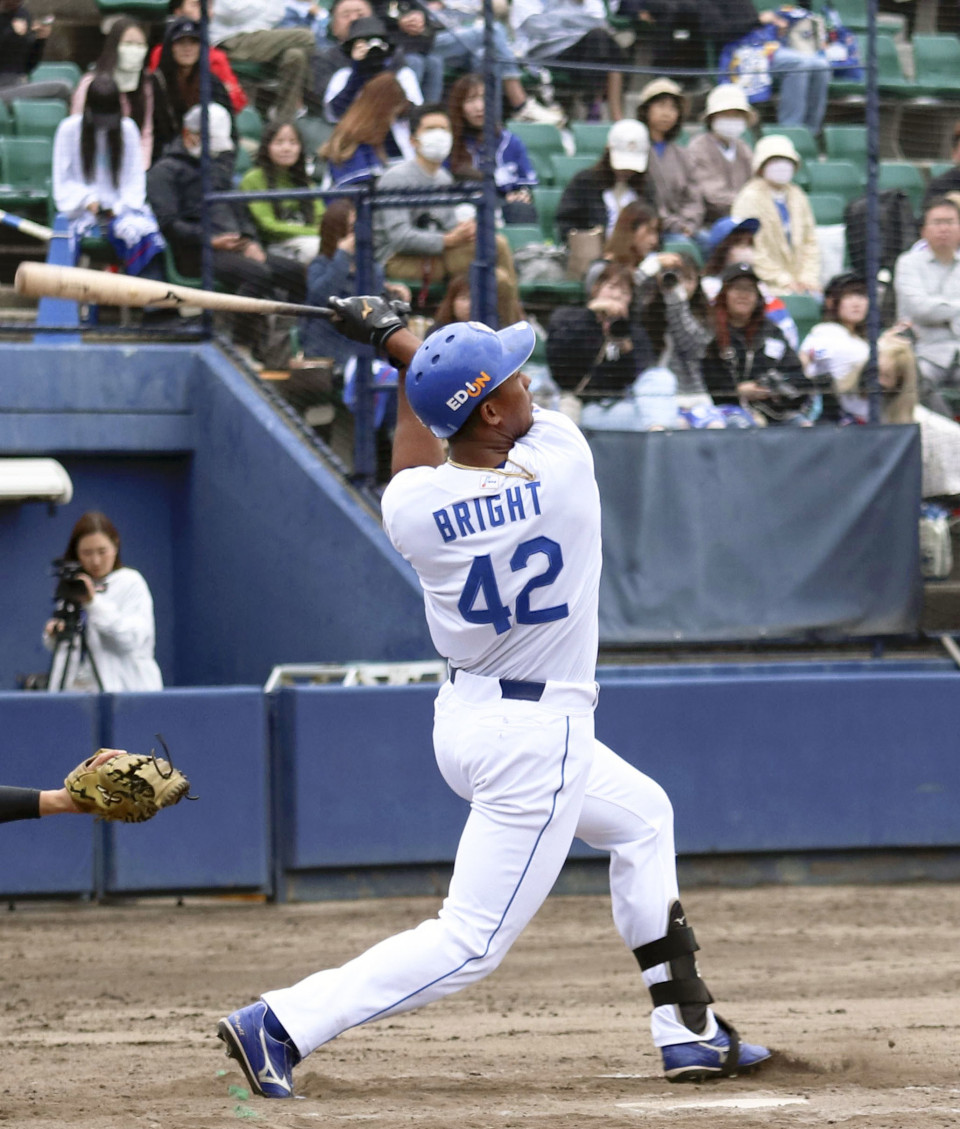Across major league baseball, 42 has long been the only permanently retired number and was done so in honor of Jackie Robinson, who became the first African American to break the color barrier when he joined the Brooklyn Dodgers on April 15, 1947.
Across the ocean in Japan, Kenta Bright, a Chunichi Dragons outfielder born to a Ghanaian father and Japanese mother now wears the iconic No. 42 jersey as a tribute to his hero Robinson, who died in his retirement at the age of 53 in 1972.

"I received a lot of courage from Jackie. I thought I also need to become like him," Bright, who was born and raised in Tokyo's Adachi Ward, told Kyodo News in a recent interview.
The 24-year-old Bright, who started playing baseball in the sixth grade, stood out among his peers due to his athletic ability while at Jobu University before he was selected by the Nagoya-based Dragons in the first round of the 2021 draft.
Hampered by injuries that forced him to spend his entire rookie season in the minor leagues in 2022, Bright debuted with the top team last season but was limited to 14 hits and four RBIs in 33 games.
He failed to make the top team's opening-day roster this year and now trains hard on and off the field every day, as he aims to play regularly in the Central League, one of Japan's two major leagues.
Bright said that when he was in elementary school, he used to be bothered by the curious stares he would receive from other kids. They would sometimes ask, "Why is your skin dark?" he said.
His salvation was a recommendation by his father, John, to watch the movie "42," the 2013 American biographical sports film depicting the life of Jackie Robinson who never succumbed to racial discrimination and prejudice. It left Bright feeling impressed.
Robinson was scouted from the then Brooklyn-based Dodgers from the Negro leagues before making his major league debut at age 28.
At the time, the United States enforced racial segregation under the Jim Crow laws, resulting in bitter experiences for Robinson almost everywhere he went, including being rejected by hotels and restaurants.
While battling racial discrimination and prejudice, he won the MLB Rookie of the Year, as well as both the National League top batting title and Most Valuable Player in 1949, as he gained a reputation throughout his career for being fleet-footed and a skillful infielder.
After his retirement, Robinson became an influential figure in the civil rights movement and was inducted into the U.S. Baseball Hall of Fame in 1962. No. 42 became a permanently retired number by MLB teams in 1997, 50 years after Robinson's debut.
Bright's appreciation for the legendary Dodgers player runs deep, and he decided to demonstrate it to the Robinson family after fulfilling his dream of becoming a professional baseball player.

"Without his bravery, I don't think I could have ever played baseball," said Bright, who was able to make contact with Robinson's youngest son David, 71, during the 2023 offseason -- tracking him down in Tanzania where he currently lives.
In December, Dragons interpreter Jun Kato was able to visit David in the East African country, where he presented him with Bright's jersey, featuring the same No. 42 stitching worn by his father Jackie. David was thrilled to receive the gift, saying that he was happy from the bottom of his heart.
David moved to Africa to connect with his roots and began growing coffee on a farm he created called Sweet Unity in the Southern Highlands of Tanzania in 1989. He formed the Mshikamano Farms Group in 1994, a cooperative of family-owned farms.
Not unlike his father Jackie, who fought to break down societal barriers, David helps to develop sales channels so that local farmers receive fair compensation for their work.
The message that resonates with Bright is that "all races are allowed to play baseball anywhere in the world, and the number 42 has more social impact than any other." He feels he can stand tall when he reflects on the meaning behind the number on his back.

At the annual "Jackie Robinson Day" on April 15, all players, including Dodgers star Shohei Ohtani, donned the No. 42 jersey in honor of Robinson's 1947 debut. Robinson paved the way for many players from around the world to prosper in the majors.
Bright also envisions a world where diversity is recognized more in Japan. "I am proud to be hafu (biracial). It will make me happy to give courage to other hafu like myself," said Bright.
In his interactions with the Robinson family, Bright was encouraged to visit his father's native country of Ghana. He said he plans to connect with his own roots once his playing career is over.

Related coverage:
Fans flock to Hokkaido station featured in film as line section closes
Japan promoting pedal power to give abandoned railways new prospects
"Neo-Japanesque" dance show finds new life in Asakusa after pandemic
 By Eri Shinagawa,
By Eri Shinagawa,









